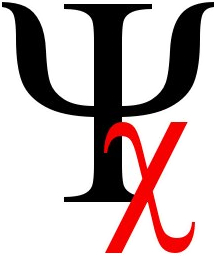The Modern Reformed Englishican
A Letter from the Editor-in-Chief
SpecGram is generally a pluralistic and religiously tolerant organization.1 We welcome and support Theolinguists (committed and doubting), Divine Unification Grammarians (original and Optimal), acolytes of the Σπεκουλάτωρ Γραμματεύς, those who entreat the Saints of the New Global Linguistic Congregation, the neo-paganistic followers of the Old Myths, SpecGram, the Religionists and its offshoot, the Margo Cult and their Supernatural Language Processing (even after they anointed a Grand Poobah), and even celebrants of Indogermanischen Urlaub.
|
|
 Tom Cobb and Marlise Horst, 2011, “Does Word Coach coach words?”, CALICO Journal 28:3.
Tom Cobb and Marlise Horst, 2011, “Does Word Coach coach words?”, CALICO Journal 28:3.
Chiasmus of the Month
May 2016
|
|
|
|
|
While we report on such issues of linguoreligion, (as well as religiolinguistics and even physical anthropolinguoreligion), we generally shy away from outright evangelism. However, I feel I can and should take this opportunity as Editor-in-Chief to tell you, Dear Reader, about Modern Reformed Englishicanism.
I myself am a Modern Reformed Englishican. In practice that means I accept the more-or-less death and impossibility of resurrection of the English case system: I try to never use whom and look forward to the distant future in which English pronouns also lose their case distinctions, though I do nothing to hasten that time. I only use lie to mean prevaricating, and allow people and objects equally to lay where they will. I accept singular they as a perfectly acceptable genderless pronoun, though I prefer it to apply only to persons unknown. I welcome y’all as an alternative to plural you, but only as long as no one goes overboard and uses it to apply to a single person.2 I prefer to retain the distinction between mass nouns and count nouns, but have begrudgingly accepted the recent Encyclical by the Englishican primates encouraging us to surrender with dignity to the younger generation who will do what they want regardless of what we say. I strive to become familiar with Americanisms, Britishisms, Australianisms, and Canadianisms, and, as an American, try hard to remember not to ridicule their need for so many u’s, and hope they will forgive my own reliance on z’s. I accept that English is a bastard tongue, ever-changing, because to do otherwise leads only to Original Englishism, which is kinda dumb.
If you’d like to learn more about Modern Reformed Englishicanism, send $20 or equivalent in a major world currency to the SpecGram offices. We’ll send some quality literature your way in 4 to 6 b’ak’tuns.
1 At least as long as lexicalism, anti-lexicalism, sociolinguistics, descriptive linguistics, and issues of comma placement are not classified as religious matters. We try to pretend the Wrathful Dispersionists and rapturous cosmolinguological eschatologists don’t exist.
2 It’s unclear whether this has ever actually happened, but every religion needs a mythical evil-doing figure.

